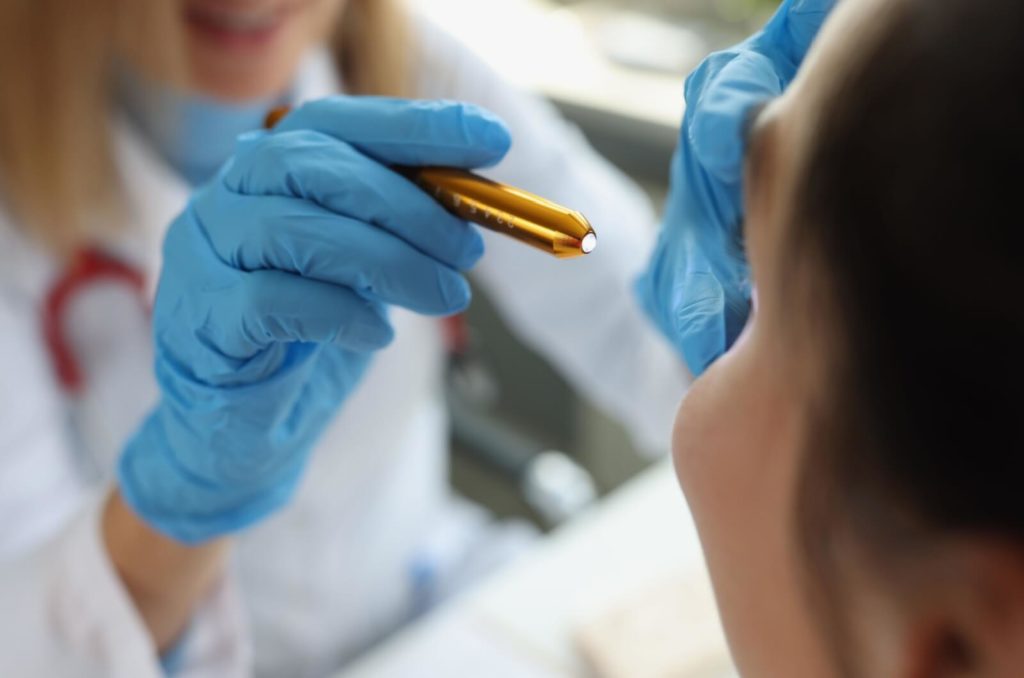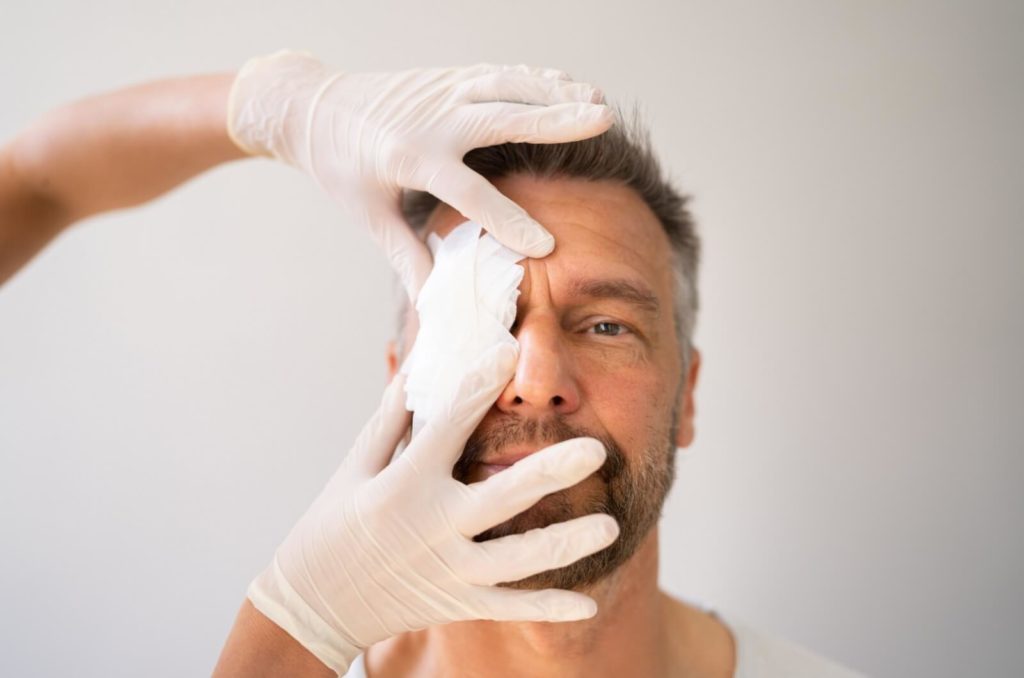Eye emergencies include sudden or severe issues affecting your ocular health or overall vision.
Urgent care is intended to handle eye emergencies that require immediate action, while optometrists serve as the frontline in eye care, addressing a broad spectrum of ocular health concerns like infections and minor injuries.
Examples of eye emergencies that necessitate urgent care include:
- Retinal detachment
- Chemical burns
- Acute angle-closure glaucoma
- Traumatic injury
Symptoms to look out for that warrant a visit to urgent care include:
- Sudden vision loss
- Severe eye pain
- Visible injury
- Flashes of light or new floaters
- Double or distorted vision
Understanding Eye Emergencies
An eye emergency involves any sudden or severe issue affecting your eyes. These situations often require immediate medical attention to prevent permanent damage or vision loss.
Not every eye problem constitutes an emergency. For instance, a person may experience mild irritation, such as a developing stye or severe dry eye, which can be managed and treated by their optometrist.
Eye emergencies are sudden. The nature of these emergencies (and other ocular diseases) is such that we don’t necessarily notice their onset. However, if you experience symptoms like severe pain, sudden vision changes, or eye injury or trauma, it’s vital to seek immediate help.
Ignoring eye emergencies can lead to serious consequences, including permanent vision loss or serious infection. Taking prompt action helps to mitigate these risks, which is why recognizing unusual symptoms and being aware of potential dangers is key.
Examples of Eye Emergencies
Eye emergencies can seriously impact your vision and ocular health if not dealt with right away. They warrant immediate urgent care.
Some examples of eye emergencies include:
- Retinal Detachment: Occurs when the retina pulls away from its normal position. Symptoms include flashes of light, shadows or dark areas in peripheral vision, and a sudden increase in floaters.
- Chemical Burns: Exposure to harmful substances like bleach or acidic cleaners requires immediate irrigation and medical attention.
- Acute Angle-Closure Glaucoma: This is a sudden and severe increase in intraocular pressure due to the blockage of the drainage angle in the eye. Symptoms include sudden eye pain, headache, nausea, and blurry vision.
- Traumatic Injury: This can include contusions, lacerations, corneal abrasions, foreign objects, or blunt trauma. Such impact injuries can cause significant damage to structures of the eye.
Urgent care facilities are equipped to handle emergencies that require timely interventions, potentially saving vision and preventing long-term complications.
In contrast, optometrists are often the first line of defense in eye care. They can handle a wide range of ocular health concerns, from infections to minor injuries, but are less well-suited for treatment of serious injuries or conditions that necessitate rapid, specialized care.
If the problem is beyond an optometrist’s scope, they will refer you to an ophthalmologist, who specializes in more complex eye conditions.

When You Should Go to Urgent Care for an Eye Emergency
With eye emergencies, time is of the essence, meaning that seeking immediate medical care is vital in preventing irreversible damage.
If you aren’t an expert, it can be difficult to know whether you’re experiencing an eye emergency that requires immediate medical attention. How can you know for certain whether your symptoms indicate a retinal detachment or acute angle-closure glaucoma?
It’s better to be safe than sorry. If you’re unsure whether your symptoms constitute an eye emergency requiring urgent care, some signs to watch out for include:
- Sudden Vision Loss: If you experience a rapid loss of vision in one or both eyes, this could signify a serious condition such as retinal detachment or a stroke affecting the eyes.
- Severe Eye Pain: Intense, persistent pain in the eye, particularly if accompanied by nausea, vomiting, or blurry vision, may indicate acute angle-closure glaucoma or other urgent conditions.
- Visible Injury: Any visible trauma to the eye or surrounding area, such as cuts, punctures, or significant swelling, should prompt immediate evaluation to prevent further damage.
- Flashes of Light or New Floaters: A sudden increase in the number of floaters or the appearance of flashes of light, accompanied by sudden vision changes like blurry vision, or a shadow in your field of vision, can signal retinal issues that require urgent assessment.
- Chemical Exposure: If your eyes have come into contact with harmful chemicals or irritants, flushing the eyes with water and seeking immediate care is essential to minimize damage.
- Double Vision or Distorted Vision: Experiencing sudden double vision or significant distortion in your visual field could be a sign of a more severe underlying condition, necessitating prompt medical evaluation.
When to Visit Your Optometrist for an Eye Emergency
Other eye concerns can be evaluated by your optometrist:
- Persistent Eye Pain: If you experience ongoing pain in your eye that doesn’t subside, even after a minor injury or irritation.
- Red or Bloodshot Eyes: While a bit of redness can be common and harmless, persistent or severe redness, especially accompanied by discomfort or vision changes, may indicate conditions like conjunctivitis or uveitis.
- Sudden Vision Changes: Experiencing sudden blurry or distorted vision can be symptomatic of an underlying ocular issue, such as macular degeneration or a vascular blockage.
- Floaters or Flashes of Light: Occasional floaters or flashes of light that aren’t associated with other alarming symptoms.
- Allergic Reactions: Contact with allergens can lead to severe itching or swelling in your eyes.
While these concerns aren’t as serious as eye emergencies, don’t undermine the importance of visiting your optometrist for a visit for effective management and treatment.
Schedule an Appointment
Deciding whether to go to urgent care or your optometrist for eye issues can be challenging. Remember, when in doubt, it’s better to err on the side of caution and seek immediate medical attention. Our team is always here to help. Contact us at Total Vision Richmond for more information on emergency eye care.


